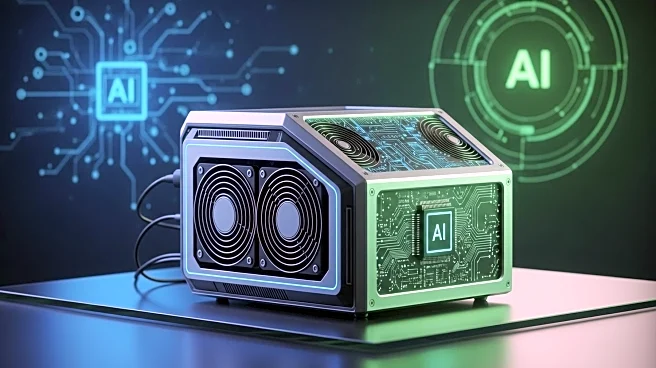What's Happening?
Nvidia has released its miniaturized Grace-Blackwell workstation, known as the DGX Spark, which is now available for purchase. The system, initially teased as Project Digits, is designed for AI and robotics developers, data scientists, and machine learning researchers. It features a Blackwell GPU capable of delivering up to a petaFLOP of sparse FP4 performance, 128 GB of unified system memory, and 200 Gbps of high-speed networking. The DGX Spark is priced starting at $3,000 and runs on a custom spin of Ubuntu Linux, making it suitable for running large AI models and workloads.
Why It's Important?
The DGX Spark offers a lower-cost workstation platform for developers who require high-performance computing capabilities. This release is significant as it provides an alternative to high-end workstation cards, which are often expensive and impractical for consumer graphics processors. By offering a compact and powerful system, Nvidia is enabling more developers to work on advanced AI projects locally, potentially accelerating innovation and development in AI technology.
What's Next?
With the DGX Spark now available, developers and researchers are expected to begin utilizing the system for AI model development and testing. The system's high-speed networking capabilities allow for the connection of multiple DGX Sparks, effectively doubling inferencing capabilities. This could lead to new collaborative projects and advancements in AI research. As Nvidia continues to develop its workstation technology, future releases may offer even greater performance and capabilities.
Beyond the Headlines
The DGX Spark's release highlights the growing demand for accessible high-performance computing solutions in the AI industry. As more developers gain access to powerful tools, the potential for innovation and breakthroughs in AI technology increases. However, the ethical considerations of AI development, such as data privacy and security, will need to be addressed as the technology becomes more widespread.









